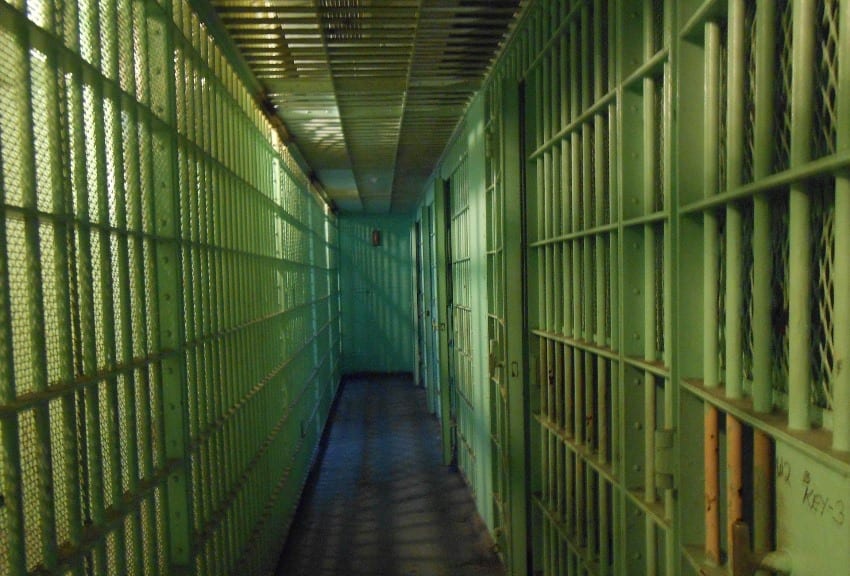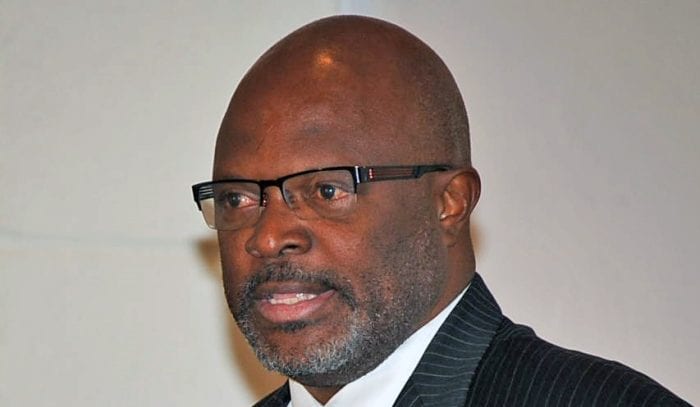
Attorney General, Adriel Brathwaite, stated that gang leaders are not heroes, but belong behind bars. (Stock Photo)
Gang members and gang leaders, whether male or female, could find themselves facing between 20 and 25 years in prison respectively when the Anti-Gang legislation is passed in Barbados.
Attorney General, Adriel Brathwaite, made this disclosure during the opening of the National Consultation on Violence hosted by the Criminal Justice Research and Planning Unit (CJRPU) at the Garfield Sobers Gymnasium yesterday.
He told those in attendance that studies conducted by the Royal Barbados Police Force, the CJRPU, United States Agency for International Development and the Regional Security System, proved there were gangs in Barbados, and they were problematic.
He also warned that it was a situation which could not be allowed to go unchecked as gang violence could result in innocent people being injured or killed.
Mr. Brathwaite lamented that too often, he heard of alleged gang leaders living among residents in districts seemingly without fear of prosecution. “These persons corrupt many of our young men and women and send them into society to commit some very serious crimes.
They are not heroes, they belong behind bars and that is why we want to give specific legislation to deal with them,” Mr. Brathwaite stated.
And, as Government moves to introduce stricter penalties to curb violence, the Attorney General also announced proposed amendments to the Bail Act and changes to the Police Act.
While the latter is expected to see a widening of police powers to conduct stops and searches, Mr. Brathwaite said amendments to the Bail Act would prevent persons charged for firearm offences from getting bail for 18 months.
“…The society has expressed lots of concern about the fact that persons who are on murder charges, and persons on serious firearm related charges, can seem to go into prison for a couple of days and come back out… [so] we are placing a window of 18 months within which a person cannot be granted bail,” he explained.
During that time, the Attorney General said it was expected that the Director of Public Prosecutions and the police would work closely together to ensure that the cases were started.
“We are not moving towards just having people incarcerated for 18 months and then they are released…. It is our hope and prayer, that through our collective effort, to ensure that during that 18 month window that their cases are started,” he said.
To facilitate this process, Mr. Brathwaite also indicated that Barbados may have to consider going in the direction of a Serious Crimes Court, and disclosed that he had already initiated discussions with some partners.
He added that amendments to the Police Act, now in the draft stages, would see police powers being widened to allow them to not only conduct stop and searches, but also cordon off certain areas and search homes if they deem it necessary, under controlled circumstances.

The Attorney General also announced proposed amendments to the Bail Act and changes to the Police Act. (FP)
Meanwhile, Barbados is expected to have a new Firearms Bill and Civil Assets Forfeiture regime before Parliament next month.
“The Firearms Bill will tighten our regime of gun ownership in terms of who can sell firearms and who can sell ammunition; and how to treat persons who are transiting Barbados with firearms,” Mr. Brathwaite said.
He explained that Government was “tightening up our regime altogether so that the type of leakage which we suspect has been happening will disappear”.
The Minister also told participants that the Civil Asset Forfeiture regime would allow authorities to go after those who have significant financial gains derived from criminal activity.
“We need to go after them. We cannot have a situation where our young people are looking up to these negative characters and saying I want to be like them….,” he stressed.
The Attorney General said it was hoped that the proposed measures would send the signal that Government was taking a zero tolerance approach to crime and those who committed them would be subjected to the maximum penalties under the law.
“Hopefully these measures coupled with strong judicial enforcement will be a deterrent to young persons who have a desire to join a gang or gang leaders who prey on vulnerable youth and initiate them into gangs,” he stated.
However, the Minister said the first order of business was still to divert as many young people from becoming involved in gangs as possible. But according to him, the reality was that you could not save everyone and those who could not be saved should pay the penalties.
